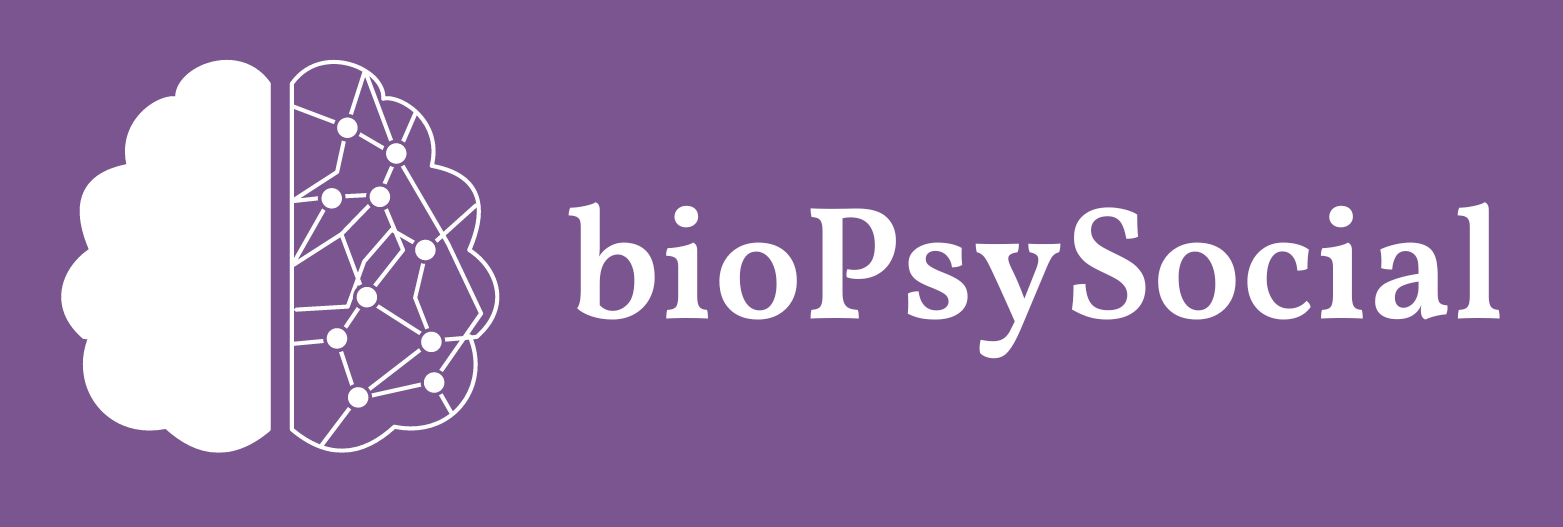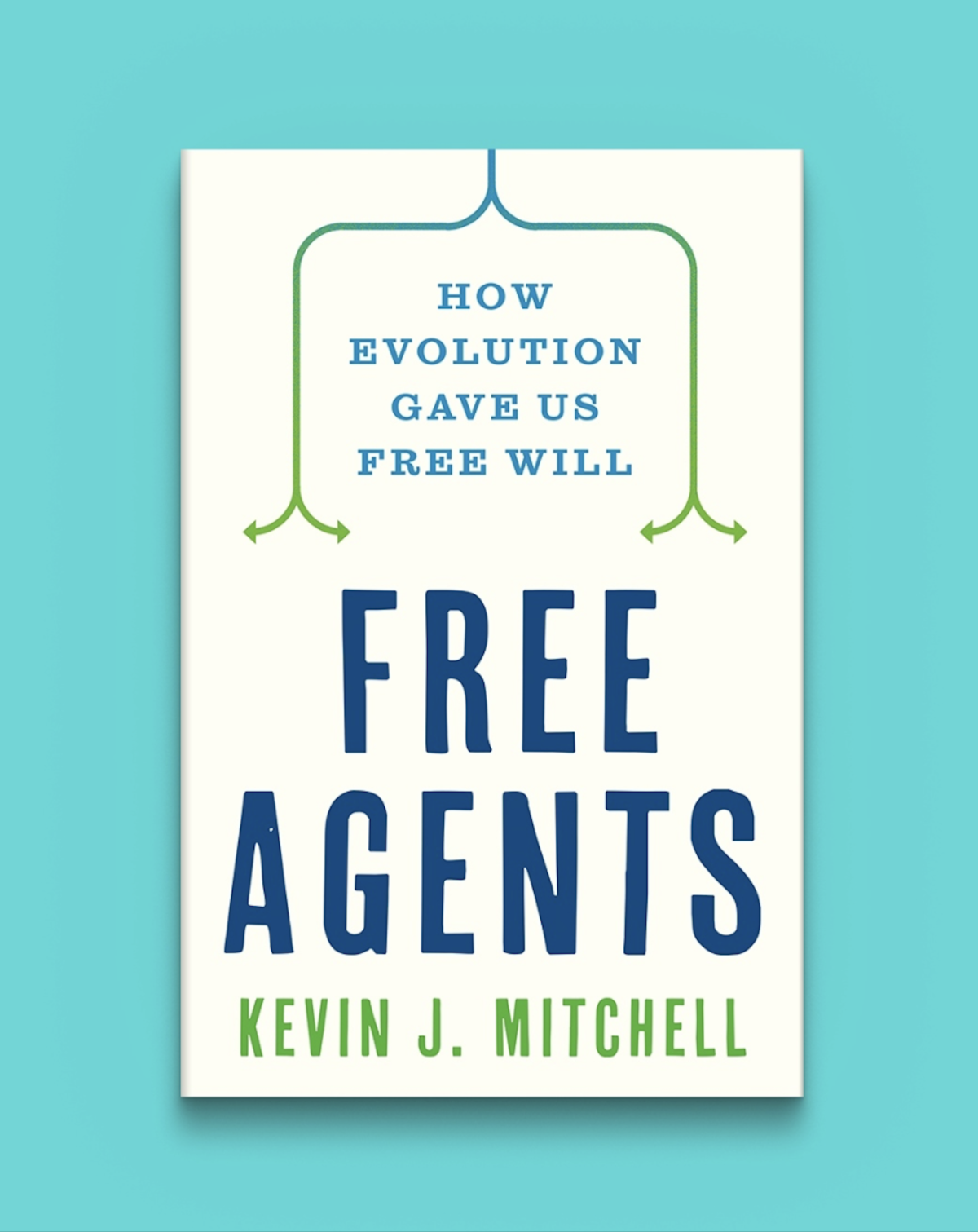You’ve probably read the sentence I was about to start with: “The question of free will has perplexed philosophers for centuries” countless of times already. But there’s indeed a reason why this topic continues to be debated, and it is because it has provoked an undying interest as we continuously learn more across centuries.
Do we have free will? What do we mean by free will? Does free will necessitate some mental entities that violate the physical laws of the universe? Can free will be compatible with biology and evolution?
These are all questions that keep some people awake (and the rest may sleep quite well – lucky for them). In his new book Free Agents, Dr. Kevin Mitchell, a neuroscience/genetics professor and author of Innate (2018), chooses the first side and attempts to delve deeply into the question bringing insight from his biological background. Not the kind that you’d expect, though. Most people from such a background would probably write about how free will is a mere illusion due to the workings of the brain, but he attempts to explain how we’re actually active agents with free will. In this post, I will review the book and explore if he provided a satisfactory argument for his perspective.
And the answer is…it’s complicated. If you thought any single book could solve the mystery of free will, then this book (or any other about the matter) is not for you. So instead, I will review the best ideas in the book and others I felt were misplaced or not well justified.
Mixed Mindset
Mitchell begins his book by stating that often the topic of free will is conjugated to discussions about moral responsibility and blame. Although the presence (or lack thereof) of free will has obvious consequences on morality, overly focusing on that aspect might mean we are biased and looking at the answer that makes us comfortable. This might render us disregard reality. About this, he writes:
“It is coming at the question from the wrong end, picking an answer we like and seeing what edifice of arguments we need to build to support it. Instead, I would like to know what kind of free will we actually have.“
I found this idea to be a captivating way to start the book with. I totally agree that if one aims to understand whether we have free will, we need to not limit ourselves to how that affects society. It might be sad or uncomfortable, but we need to study what’s really happening not what we think is nice. Unfortunately, this discomfort-tolerant approach was undermined with the author insisting on another idea – that free will as recent neuroscientists often frame it as an illusion is quite far from our experience and accordingly, he is skeptical. It seems to when it comes to this, he might have modified his orientation and hypothesis to look for something that is convenient – to accommodate his own experience. And frankly, I liked the first move more.
Excellent – Top-down causation and Systems Approach
One of the book’s biggest strengths is its emphasis on a possible top-down causation and systems (such as the whole animal or its brain) affecting the smaller parts (such as neurons). Throughout the book, Dr. Mitchell brilliantly explains how systems (like humans) have goals and meaning and these might affect the working of smaller components. This is against the traditional perspective of reductionist science, where most causation is believed to be upward, i.e. smaller compartments affecting the bigger ones. Systems approaches are increasingly gaining interest in science, engineering, and medicine; as they might provide more comprehensive answers than reductionist ones that have often resulted in incomplete pictures of reality. Accordingly, his emphasis on that was coherent, consistent and relevant to any area of the sciences even beyond the horizon of the book and free will.
Good – Relationship between Evolution and Free Will
Mitchell achieves the goal of showing how biology and natural selection may have led to the emergence of free will, out of a need to survive. With million of years, living organisms might have found themselves in circumstances where simply reacting passively to the environment was not enough to shield themselves from predators or find food. Hence, he argues that free will (or agency) doesn’t have to be a gift from supernatural entities. Rather, it could be an evolutionary driven adaptation of biological systems to ensure their survival in harsh and often unpredictable surroundings in the world. The associated concepts were also beautifully explained, and they bring a cohesive perspective, where it seems free will is more about biology. It feels as if it’s some middle ground between physics/pure neurophysiology on one side and religion/mysticism from the other.
Mixed and Excessive Criticism of Anti-Free Will Studies
Although Mitchell does a great job of articulating his arguments and often dispelling myths and incoherences such as exaggerated statements by scientists, sometimes he goes a bit foo far maybe. For instance, let’s discuss the famous Libet experiment that is often used to say free will is an illusion. In this controversial study, scientists were able to predict beyond chance the direction of a person’s hand movement before the person seemed to choose (though not with 100% accuracy). The study was criticized by Mitchell on the premise that the behavior tested is mundane and not the same as deliberate behavior where free will actually might matter and lead to consequences. He cited other studies that failed to show that prediction in more important decisions. However, the problem might be due to technicalities, such as sample sizes. Additionally, the inherent complexity of the more sophisticated decisions might need more advancements to be studied. Though the Libet experiment’s results is often blown out of proportion, it does still challenge our notions of choice and free will. On another page, Mitchell adds, “Nothing in philosophy or physics or neuroscience or genetics or psychology or neurology or any other science undermines the idea that we do have the capacity for conscious, rational control of our actions.” To say that neuroscience or other sciences have completely eradicated the possibility of rational control of behavior free will is a reach, but to say they haven’t at least challenged or undermined it is one as well.
Random note – I’m not sure why at some point he said that our psychological traits do not affect our moment-to-moment activities but only affect our general patterns on the long run. Some traits, such as the tendency to approach/avoid or to be anxious, clearly affect our immediate behaviors. I also liked the Audiobook version and when he changed the word from “see” to “you’re hearing” because it’s the audio version (or something like that).
What’s the issue with Descartes and Dualism?
Mitchell seems to be in some kind of intellectual feud with Rene Descartes, a French philosopher of the 16thand 17th century, who’s famous for his work in the philosophy of mind. It’s very clear Mitchell doesn’t like him much as he often pejoratively uses the term “dualism” (that Descartes is known for). I think it would have been interesting to specifically label it as “substance dualism” – the classical dualism where the mind is formed of a substance other than the material world, an idea that’s obviously ridiculous in the age of neuroscience and is the one Mitchell is actually referring to. However, I think the distinction is important because of a similar more modern version: “property dualism“. This one suggests that mental content might have emerging properties beyond physical ones that may actually be compatible with Mitchell’s views (and mine). Interestingly, despite Mitchell criticizing dualism often, he seems to fall into a dualist trap himself once. “Brains do not commit crime: people do,” he confidently states. Even if one is to believe in Mitchell’s version of free will, it has to be mediated the brain so this sentence was rather out of place in the book flow.
So what about free will? Do we have it?
The notion of free will lacks a comprehensive agreed upon definition. And many authors, scientists and philosophers each define it their way and go with that flow. Mitchell is no different. And the book title is quite honest about it as he uses the term “Free Agents”. It seems that’s exactly how he operationalizes “free will” as some causative agency . This definition clearly seems to work with biology and evolution, and mostly with physics and math as he isn’t directly suggesting any magical/supernatural component. However, it might not be in line with how many people typically define free will, as the intimate sense of being able to make a decision that’s not fully neurologically based or statistical. And thus, the questions could remain largely unanswered for many. As for me, I don’t think it’s the perfect definition (there isn’t any) yet since it doesn’t provide a mechanism of how free will is directly exercised despite physical factors and randomness, but it’s of the good definitions that I like and am comfortable to say they might exist.
Conclusion
Overall, Free Agents does not and cannot offer a final answer to the question of free will. We don’t have a full understanding of how the brain or mind work to be able to have clear answers, and at the end of the day, all of us will have our beliefs that are at different ends of the spectrum.
But what the book surely adds is many interesting ideas to the free will narrative and storyline that will continue to evolve with generations. Whether you’re a hardcore determinist or a spiritual free-will proponent, this book can be quite interesting and flows nicely as it’s not boring and doesn’t get stuck in one idea forever. I admit, it didn’t blow my mind. But this is perhaps because I have already read extensively about most of the topics so the only new stuff I got from it are his direct new ideas – which I loved. So I could have enjoyed it more if I had no nuanced perspective on what “optogenetics” or “heritability” were for example. But overall, it’s a good read that I do recommend. Now that we’re done, I will use my causal agency to go back to my life and pretend that I have full free will regardless of whether it’s an illusion or not.

